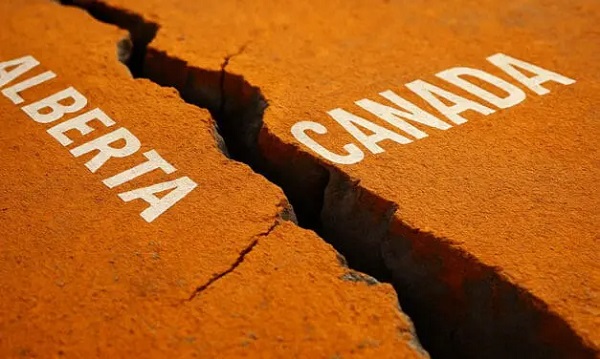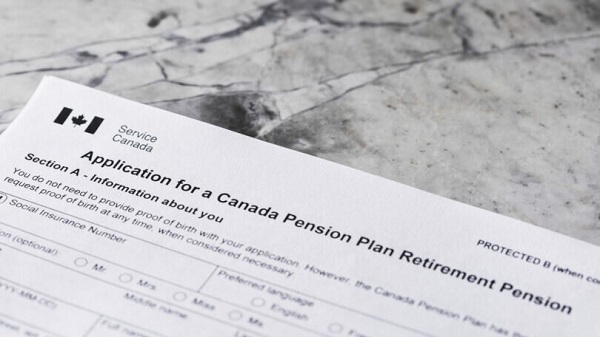2025 Federal Election
Police Associations Endorse Conservatives. Poilievre Will Shut Down Tent Cities

From Conservative Party Communications
Under the Lost Liberal decade, homelessness has surged by 20% since 2018 and chronic homelessness has spiked 38%. In cities like Nanaimo, Victoria and London, the number of people living in tents and makeshift shelters has exploded. In Toronto alone, there were 82 encampments in early 2023—now there are over 200, with an estimated 1,400 in Ontario.
Yesterday, Conservative Leader Pierre Poilievre received the endorsement of the Toronto Police Association, the largest single association of its kind in Canada, representing approximately 8,000 civilian and uniformed members.
This follows the endorsement by the police associations of Durham, Peel, Barrie, and Sault Ste. Marie of the Conservative plan to stop the crime and keep Canadians safe, after the Liberal government’s easy bail and soft-on-crime policies unleashed a wave of violent crime.
“These men and women put their lives on the line every day to keep our streets safe,” Poilievre said. “Our Conservative team is honoured to have their support and will back them up with laws to help them protect all Canadians.”
Poilievre also announced that a new Conservative government will ensure that police have the legal power to remove dangerous encampments to end the homelessness and the mental health and addiction crisis that has trapped thousands in dangerous tent cities and make life unsafe for law-abiding Canadians who live near them.
“Parks where children played are now littered with needles. Small businesses are boarded up and whole blocks of storefronts are shuttered because their owners can’t afford to deal with constant break-ins and vandalism,” Pierre Poilievre said. “Public spaces belong to everyone, but law-abiding citizens, especially families and seniors, are being pushed out to accommodate chaos and violence.”
Canadian cities have a mixed record of dealing with encampments in public places, with some not acting because they don’t believe they have the legal authority to remove the camps. Conservatives will work with provinces and ensure law enforcement has the clear legal tools they need to remove encampments and give Canadians back the safe streets and public spaces they deserve.
A Poilievre-led government will do this by reversing the Liberals’ radical pro-drug policies and by:
- Amending the Criminal Code to give police the tools to charge individuals when they endanger public safety or discourage the public from using, moving through, or otherwise accessing public spaces by setting up temporary structures, including tents.
- Clarifying in law that police can dismantle illegal encampments and ensure individuals living in them who need help are connected with housing, addiction treatment, and mental health services.
- Giving judges the power to order people charged for illegally occupying public spaces with a temporary structure and simple possession of illegal drugs to mandatory drug treatment.
- Returning to a housing first approach to homelessness, ensuring people get off the streets into a stable place to live with the support they need to rebuild their lives.
Under the Lost Liberal decade, homelessness has surged by 20% since 2018 and chronic homelessness has spiked 38%. In cities like Nanaimo, Victoria and London, the number of people living in tents and makeshift shelters has exploded. In Toronto alone, there were 82 encampments in early 2023—now there are over 200, with an estimated 1,400 in Ontario.
These encampments are a direct result of radical Liberal policies such as drug decriminalization and unsafe supply. They are extremely dangerous for the people trapped in them, who endure overdoses, assaults, including sexual assaults, human trafficking, and even homicide, as well as the community around them.
Under the Poilievre plan, tent cities will no longer be an option—but recovery will be. Conservatives will give law enforcement the tools they need to help clean up our streets, deal with chronic offenders, and provide truly compassionate recovery and treatment where it is needed.
“Instead of getting people the help they need, the Liberals abandoned our communities to chaos,” Poilievre said. “Leaving people trapped by their addictions to live outdoors through Canadian winters, sick, malnourished, cold, wet and vulnerable is the furthest thing from compassionate.”
A Conservative government will also overhaul the Liberals’ dangerous pro-drug policies that have led to over 50,000 overdose deaths over the Lost Liberal Decade. Instead of flooding our streets with taxpayer-funded hard drugs, we will invest in recovery to break the cycle of despair and offer real hope.
Conservatives will allow judges to sentence offenders to mandatory treatment for addiction, and we will fund 50,000 addiction treatment spaces, ensuring that those struggling with substance use get the support they need to recover—because real compassion means helping people get better, not enabling their suffering.
In addition to these measures, Poilievre has a plan to end the soft-on-crime approach of the Lost Liberal Decade, end the chaos, and restore order and safety across Canada:
- Three-Strikes-and-You’re-Out Law: Individuals convicted of three serious offences will face a minimum prison term of 10 years and up to a life sentence, with no eligibility for bail, probation, parole, or house arrest.
- Mandatory Life Sentences: Life imprisonment for those convicted of five or more counts of human trafficking, importing or exporting ten or more illegal firearms, or trafficking fentanyl.
- Repeal of Bill C-75: Ending the Liberals’ catch-and-release policies to restore jail, not bail, for repeat violent offenders.
- New Offense for Intimate Partner Assault: Creation of a specific offense for assault of an intimate partner, with the strictest bail conditions for those accused, and ensuring that murder of an intimate partner, one’s own child, or a partner’s child is treated as first-degree murder.
- Consecutive Sentences for Repeat Violent Offenders: So there will no longer be sentencing discounts for multiple murderers.
Canadians can’t afford a fourth Liberal term of rising crime and chaos in our streets. We need a new Conservative government that will end the chaos, restore order on our streets and bring our loved ones home drug-free.
2025 Federal Election
NDP’s collapse rightly cost them official party status

This article supplied by Troy Media.
 By Michael Taube
By Michael Taube
Official party status requires 12 seats. The NDP got seven. End of story
Rules are rules.
That, in a nutshell, is why the NDP wasn’t granted official party status in the House of Commons on Monday. Prime Minister Mark Carney and the
Liberals, to their credit, made the right decision.
Let’s examine why.
The 1963 Senate and House of Commons Act passed an amendment that gave an annual allowance to party leaders other than the prime minister and
leader of the Opposition. In doing so, the Canadian government had to establish what constitutes a “political party.” The definition they came up with was a sensible one: it had to have a “recognized membership of 12 or more persons in the House of Commons.”
This important amendment is still used today.
The NDP fell from 24 to a paltry seven seats in last month’s federal election. (There are a total of 343 seats in the House of Commons.) They finished with 1,234,673 votes, or 6.29 per cent, which was behind the Liberals, Conservatives and Bloc Québécois. Party leader Jagmeet Singh, who had represented the former Burnaby South riding since 2019, finished a distant third in the newly created Burnaby Central riding and resigned.
The NDP’s seven seats is well below the 12-seat requirement needed for official party status. This means Canada’s socialist alternative won’t be able to ask questions in the House of Commons and will lose out on money for research purposes.
Or, to put it another way, they’re plumb out of luck.
Hold on, some people said. They pointed out that the NDP’s seat count and popular vote only plummeted because many progressive voters backed Carney and the Liberals as the best option to counter U.S. President Donald Trump and his tariffs. They felt that the NDP’s long history as a champion for unions and the working class should count for something. They suggested there should be an exception to the rule.
Guess what? They’re wrong.
This is the worst election result in the party’s history. Even its predecessor, the Co-operative Commonwealth Federation (CCF), did marginally better in its first campaign. The CCF won seven out of 245 seats—and earned 410,125 votes, or 9.31 per cent—in the 1935 election. Party leader J.S. Woodsworth, who had represented the riding of Winnipeg North Centre as an Independent Labour MP since 1925, comfortably held his seat.
Meanwhile, this won’t be the first time they’ve ever lost official party status.
The NDP dropped from 43 to nine seats in the 1993 election. It was a dismal showing, to say the least. There was a suggestion at the time that then-party leader Audrey McLaughlin, the first woman to lead a party with political representation in Canada’s House of Commons, deserved a better fate. While the NDP certainly came closer to achieving the 12-seat requirement in this particular election, Prime Minister Jean Chrétien and the Liberals decided against granting them official party status.
Why? As I mentioned earlier, rules are rules.
Then again, British pilot Harry Day notably told his fellow flying ace Douglas Bader in 1931, “You know my views about some regulations—they’re written for the obedience of fools and the guidance of wise men.”
Does this mean that individuals and organizations who follow rules are, in fact, fools? Not at all. While certain rules in a liberal democratic society can range from slightly questionable to utterly ridiculous, they’re usually put in place for a specific purpose.
In the case of the House of Commons, it’s to ensure that a bar has been set with respect to political representation. Is 12 seats the right number? That’s difficult to say. It certainly prevents small protest parties and one-issue parties that unexpectedly win a tiny number of seats in an election from acquiring power and status right off the bat. They need to win more seats and grow in size and stature to reach a point of respectability. Most of them never reach this point and disappear while others float in a constant state of mediocrity like the Green Party of Canada. ’Tis the nature of the political beast.
One final point. If Singh and the NDP had reached double digits in total number of seats in 2025, a solid case could have been made in favour of official party status. If they had finished with 11 seats, it would have almost been a lock. Neither scenario ultimately materialized, which is why Carney and the Liberals did exactly what they did.
Michael Taube is a political commentator, Troy Media syndicated columnist and former speechwriter for Prime Minister Stephen Harper. He holds a master’s degree in comparative politics from the London School of Economics, lending academic rigour to his political insights.
Troy Media empowers Canadian community news outlets by providing independent, insightful analysis and commentary. Our mission is to support local media in helping Canadians stay informed and engaged by delivering reliable content that strengthens community connections and deepens understanding across the country.
2025 Federal Election
Judicial recounts give Conservatives 2 more seats, keeping Liberals short of majority

From LifeSiteNews
After a judicial recount, Conservative candidate Kathy Borrelli has officially won over Liberal incumbent Irek Kusmierczyk, in the Ontario riding of Windsor-Tecumseh-Lakeshore.
Judicial recounts from the 2025 federal election have given the Conservative Party two new seats, with one candidate winning by just four votes.
After a judicial recount, Conservative candidate Kathy Borrelli has officially won over Liberal incumbent Irek Kusmierczyk, in the Ontario riding of Windsor-Tecumseh-Lakeshore.
Borrelli got 32,090 votes, with Kusmierczyk getting 32,086 votes, and NDP candidate Alex Ilijoski getting 4,240 votes.
In the Newfoundland riding of Terra Nova-The Peninsulas, Conservative candidate Jonathan Rowe beat out Liberal Anthony Germain by just 12 votes after a recount with the initial result showing a Liberal victory.
The new election results mean the Conservatives now have 144 seats with the Liberals at 169, three short of a majority.
Judicial recounts are automatically triggered when the margin of victory for a candidate is less than 0.1 percent of valid votes.
While these recounts have favored the Conservatives, others have gone in the Liberal Party’s favor.
A May 16 judicial recount switched the southern Ontario riding of Milton East-Halton Hills South to the Liberals with a 21-vote victory over the Conservatives.
Overall, the election results have been a big blow to the Conservative Party, which on top of losing the election also saw its leader, Pierre Poilievre, fail to win his long-held seat. However, Poilievre is expected to run in a yet-to-be-announced by-election in Alberta to reclaim a seat in Parliament.
-

 Addictions14 hours ago
Addictions14 hours agoMan jailed for trafficking diverted safer supply drugs, sparking fresh debate over B.C. drug policies
-

 Alberta16 hours ago
Alberta16 hours agoHow Trump and Alberta might just save Canada
-

 Bruce Dowbiggin11 hours ago
Bruce Dowbiggin11 hours agoCaitlin Clark Has Been The Real Deal. So Her WNBA Rivals Hate Her
-

 Business15 hours ago
Business15 hours agoThe Liberals Finally Show Up to Work in 2025
-

 Alberta14 hours ago
Alberta14 hours agoJann Arden’s Rant Will Only Fuel Alberta’s Separation Fire
-

 Banks12 hours ago
Banks12 hours agoCanada Pension Plan becomes latest institution to drop carbon ‘net zero’ target
-

 Daily Caller13 hours ago
Daily Caller13 hours agoThere’s A Catch To California’s Rosy Population Stats
-

 espionage2 days ago
espionage2 days agoTrudeau Government Unlawfully Halted CSIS Foreign Operation, Endangering Officers and Damaging Canada’s Standing With Allies, Review Finds



